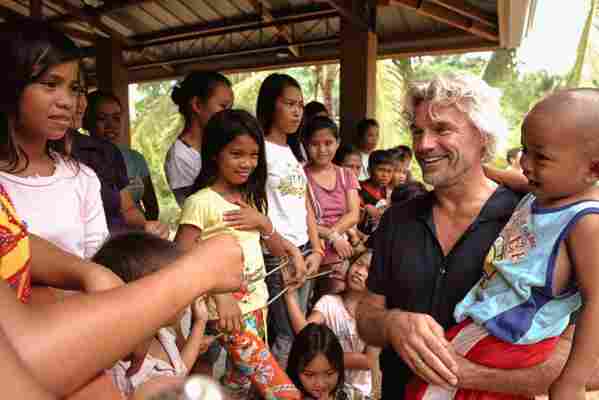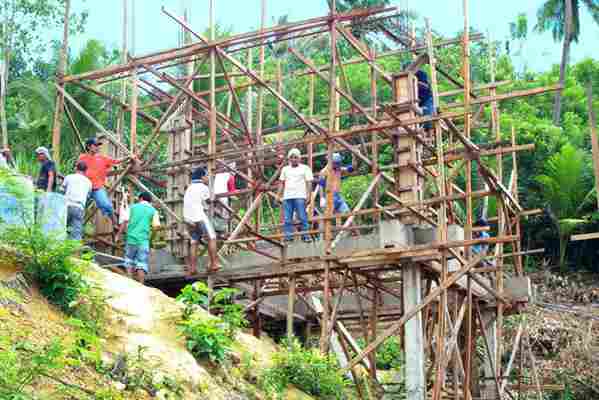Bobby Dekeyser Provides New Housing for a Philippine Village
When Bobby Dekeyser retired from professional soccer at 26—the Belgian-born goalie played mostly in Germany—he was married with kids and had one idea for a fallback career: selling hand-painted skis. That venture flopped, but his company, Dedon , went on to become one of the world’s premier makers of outdoor furniture.
As Dekeyser recounts in his memoir, Not for Sale! , just released in the U.S., an encounter with Philippine woven-rattan goods at a trade fair in 1991 inspired him to reinvent his business. Dekeyser eventually opened his own factory on the island of Cebu, where he now employs some 2,000 workers—“I was just amazed at their weaving skills,” recalls Dekeyser—who handcraft a wide range of synthetic-fiber seating, beds, and ottomans tailored to the luxury-lifestyle vision he calls “the outdoor living room.”

Based in Hamburg, Dekeyser spends about a month total each year in the Philippines. (The company also has the eco-friendly resort Dedon Island, opened on the isle of Siargao in 2012.) “You get the feeling that the people have no stress,” says Dekeyser. At the same time, he notes, there’s “an extreme divide between rich and poor.” Broadening the mission of his foundation, Dekeyser&Friends —launched in 2009 to encourage young people worldwide to pursue ideas for positive social change through mentoring programs—he spearheaded an ultra-low-cost housing and community-building initiative in Compostela, a poverty-scarred corner of Cebu.

The resulting village is home to 40 families whose means of survival has long been scavenging a nearby garbage dump. Devised pro bono by French designers Jean-Marie Massaud and Daniel Pouzet, the tin-roofed concrete-and-wood structures (each has its own bathroom and outdoor kitchen) feature woven sliding walls created in collaboration with the homeowners themselves. Residents also receive education and training in farming, jewelry-making, and other skills to expand their economic opportunities and help them pay for their dwellings over time, giving them a sense of proprietorship.
Buoyed by the project’s success so far, Dekeyser is already looking to enlarge the village. “My kids will inherit the foundation, not the company,” he says, noting that charity work is now his primary focus. “I hope it inspires them—and others.” dekeyserandfriendrg